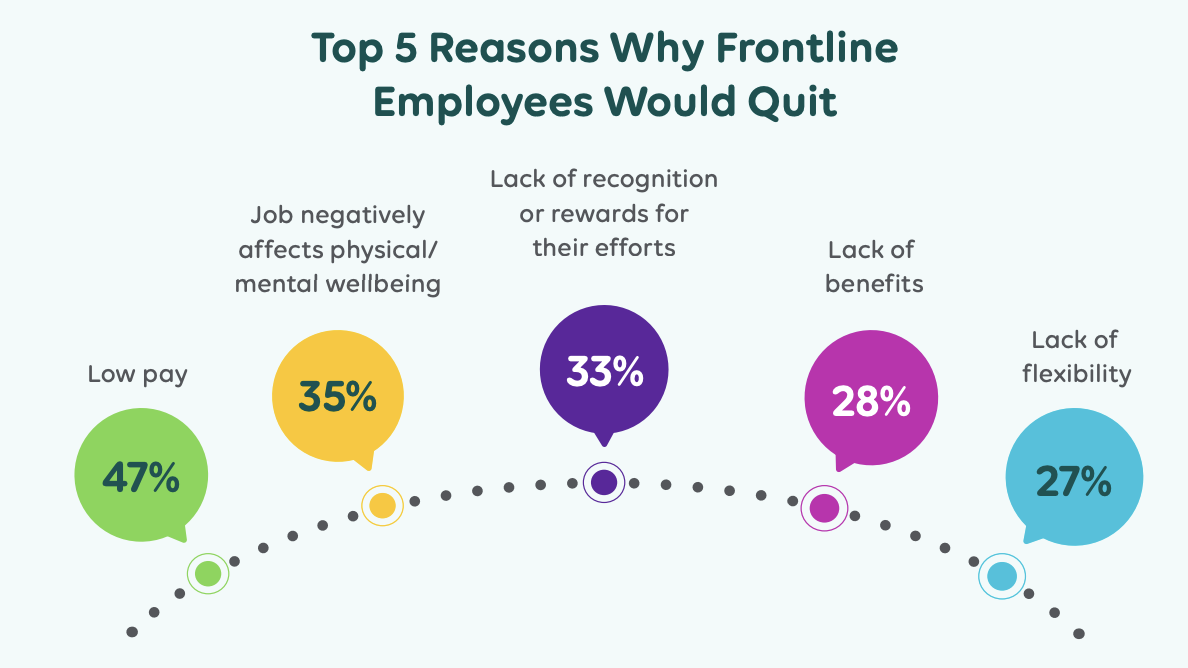
Which perks are most popular with the front-line workforce?

Many frontline workers feel overworked, underappreciated, and are tempted to quit for a better employee experience, according to a new report.
More than 3 in 4 (75%) of these workers feel burnt out, found the UKG survey of nearly 13,000 front-line workers and managers in 11 countries.
In addition, among front-line workers:
The report also found that frontline employees need more support, as 42% said their organisation treats them like a number, not a person, and 46% consider quitting on days when the jobs get tough, according to the report.

Source: UKG
Encouragingly, a majority of frontline employees feel psychologically safe in the workplace, according to a UKG, as 81% feel comfortable sharing their opinions and ideas, taking risks, or making mistakes without fear of retaliation.
More than six in 10 frontline employees also said they are treated with respect at work (67%), and that their feedback on the work experience usually influences change at their organisation (61%), according to the report.
And two-thirds of frontline employees globally (66%) consider their workplace great overall.
The report highlighted the importance of providing benefits and perks to frontline employees, who comprise nearly 80% of the world's working population.
"To help ensure a more fulfilling, more rewarding employee experience, the frontline workforce needs greater workplace flexibility, better work-life balance, increased career development opportunities, and, ultimately, a great place to work for all, across roles and locations," the report read.
As the UKG study reveals, work-life balance/flexibility and work schedules (tied at 55%) are two of the most important factors frontline employees consider when choosing an employer, only behind pay/compensation (71%).
Moreover, over a quarter of frontline employees globally (27%) say they’d resign due to a lack of workplace flexibility.
“Peoples’ work preferences have rapidly evolved over the past five years,” said Schawbel. “It’s exciting to see more organizations adopting innovative practices like employee self-scheduling, and that modern workforce management technology is rapidly pushing what’s possible for frontline flexibility even farther.”
A little over half of organizations with frontline employees (54%) offer flexible hours/self-scheduling. Other flexible scheduling practices include:
The report also emphasised the importance of recognising employees to improve their well-being.
"A little recognition goes a long way in making employees feel more appreciated," the report read. "Employee recognition can boost morale, lead to happier employees, and prevent talent from quitting, even if they're feeling burned out."